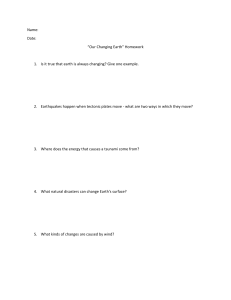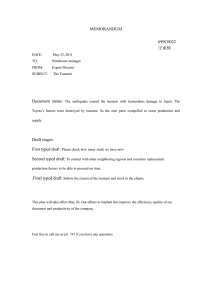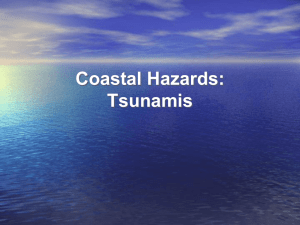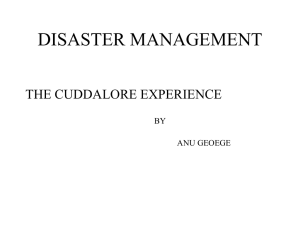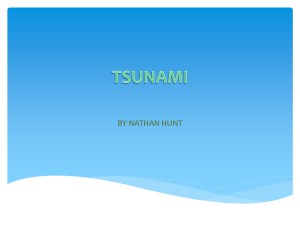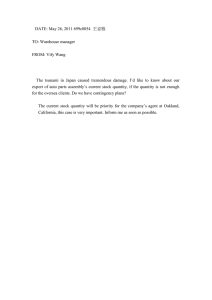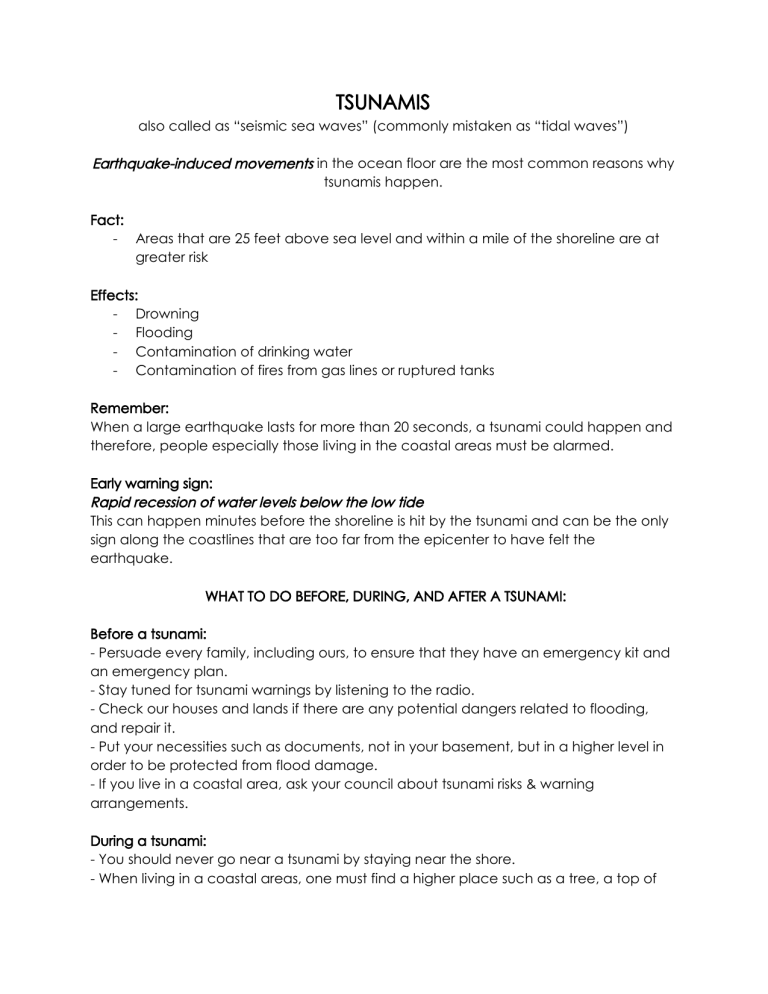
TSUNAMIS also called as “seismic sea waves” (commonly mistaken as “tidal waves”) Earthquake-induced movements in the ocean floor are the most common reasons why tsunamis happen. Fact: - Areas that are 25 feet above sea level and within a mile of the shoreline are at greater risk Effects: - Drowning - Flooding - Contamination of drinking water - Contamination of fires from gas lines or ruptured tanks Remember: When a large earthquake lasts for more than 20 seconds, a tsunami could happen and therefore, people especially those living in the coastal areas must be alarmed. Early warning sign: Rapid recession of water levels below the low tide This can happen minutes before the shoreline is hit by the tsunami and can be the only sign along the coastlines that are too far from the epicenter to have felt the earthquake. WHAT TO DO BEFORE, DURING, AND AFTER A TSUNAMI: Before a tsunami: - Persuade every family, including ours, to ensure that they have an emergency kit and an emergency plan. - Stay tuned for tsunami warnings by listening to the radio. - Check our houses and lands if there are any potential dangers related to flooding, and repair it. - Put your necessities such as documents, not in your basement, but in a higher level in order to be protected from flood damage. - If you live in a coastal area, ask your council about tsunami risks & warning arrangements. During a tsunami: - You should never go near a tsunami by staying near the shore. - When living in a coastal areas, one must find a higher place such as a tree, a top of the building, and the likes. One could also grab on a floating object. - When inside the house, we must stay away from windows as much as possible. . - Stay put of the warnings given by the local officials. This is to ensure that it is already safe or if there is another wave to come. - A tsunami creates flood waters and here, it is very hard to drive or walk through. Before going anywhere, we must listen to the evacuation plan given by the rescuers or the local officials After a tsunami: - Check ourselves and the people around us from injuries and get first aid if needed. - When re-entering your home or a building, use extreme caution because some might be damaged by the flood waters. Also, do not go sightseeing. - Be aware that there may be one more wave after another and it could be bigger than the first one. Continue to wait for the announcement of rescuers or local officials. Realizations: Natural disasters can cause loss of life. Even if nobody wants to talk about it, just imagine the death of your family member would have on your life. Your home could also be damaged whether large or small. Also, you could lose some irreplaceable possessions. The burden that unpreparedness could bring definitely matters. Think about how long it would take before you can cover financial losses caused by a natural disaster. Moreover, you could experience stress and anxiety, and relationship problems, often for years to come. Therefore, we must always be aware of what to do before, during, and after any calamities. This is to lessen the destruction of such. We must also know the hazards of our location (whether it is prone to a tsunami or not). We must also trust whatever the local officials and rescuers would advise. Government Agency: The National Disaster Risk Reduction Management Council is continuously helping us prepare for natural disasters, and how we should respond to such. Prepare for the worst, plan for the best. Be alert and be aware.
